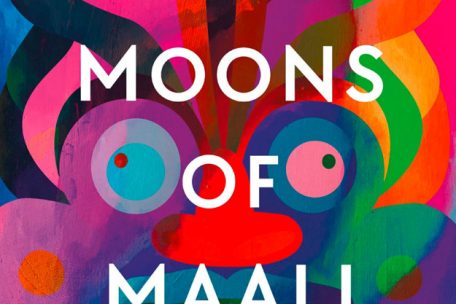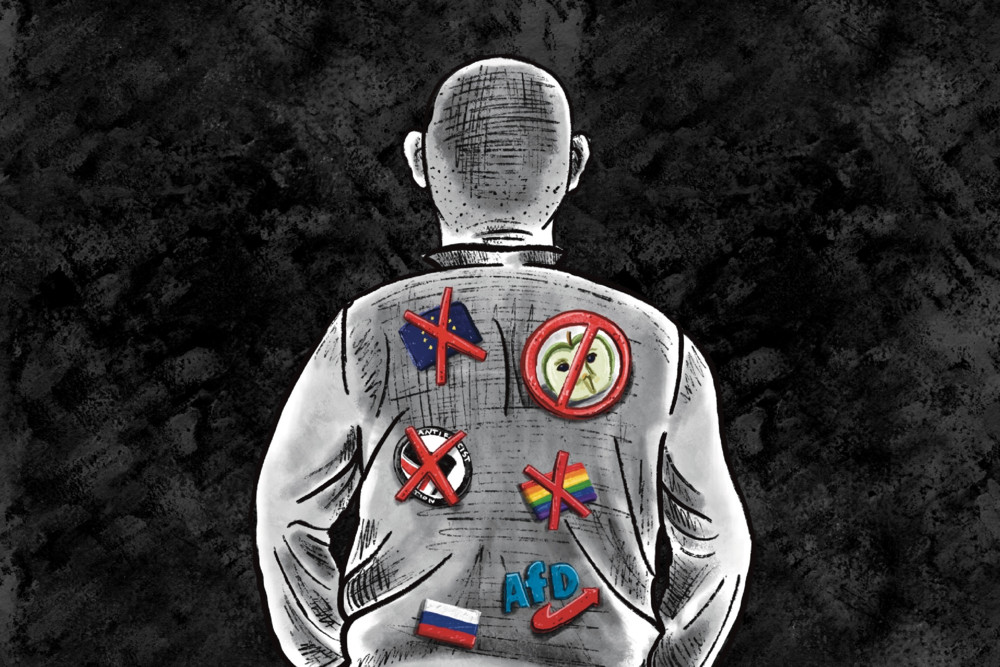The shortlist of the Booker Prize generally has a very high literary standard. If this year’s six novels confirm once more the strong quality of the jury’s selection – all six books deserve to be read, even though not all are equally good or relevant –, „The Seven Moons of Maali Almeida“ definitely stands out – because of its ambition, its vision, its scope, its combination of the eerily surreal and the brutally realistic, its stylistic concision and its brilliant you-narration that allows Karunatilaka to combine one-liners that’ll stay with you with an almost cinematographic sense of describing places and characters.
„The Seven Moons of Maali Almeida“ tells the sad story of its eponymous character: Maali Almeida is (or rather, was, since the novel starts right after his brutal assassination) a war photographer who has a talent for showing up at the right moment in the worst of places and who wishes to „do for Lanka’s civil war what naked napalm girl did for Vietnam”, an incurable and passionate gambler who erroneously believes his knowledge of math and probability will lead him to easy money, a drug addict who fancies the happy pills of his girlfriend Jaki and a closet gay who, despite being deeply in love with DD, son of a corrupt politician – a pleonasm, especially in Sri Lanka, as the novel will relentlessly prove with a sense of cynicism that borders on despair –, can’t stop cheating on his boyfriend in an almost pathological way.
When Maali awakes in the bureaucratic chaos of the Afterlife – also called the In Between –, he can’t believe he’s dead and prefers to cling to the hypothesis he’s on yet another trip provided by Jaki’s pills. While slowly having to accept what has happened to him, he adapts to the ontological house rules of a place that is crammed to the brim with dead people, ghouls, demons, helpers that want to guide the undead towards the Light because „the In Between is congested“ and other creatures who try to lure him into an army of the vengeful awaiting the arrival of their executioners. Thus, Maali learns how to ride winds – a method of transportation that feels „like a magic carpet without the carpet bit” – after he’s been told he can travel anywhere his body has been and can go where his name is spoken, eavesdropping on people that worry about or rejoice in his disappearance.
What starts off as something similar to „Au piano“ by Jean Echenoz, „How the Dead live“ by Will Self, a more ludicrous take on „Bardo or not Bardo” by Antoine Volodine or even something as fun as Netflix-series „The Good Place“ quickly develops into something much darker and much more political, since it seems that, being a gay war photographer who might have taken one disagreeable picture of murdering politicians, colonels or majors too many, probability runs high that there’s more than one person or group of people who might have wanted to get rid of him.
While trying to find a way to contact his lover DD and his best friend Jaki, the two people he has loved and betrayed the most, in order to make them aware of a box of pictures that could set the political landscape of Sri Lanka on fire and chop the heads of many a murderous and corrupt leader, Maali also tries to recover his memory so as to find out who actually killed him. And he’s got seven moons to solve all this before stepping into the Light.
Following the fast pace of Karunatilaka’s narrative, we’re soon embarked on a strange odyssey, learning the rules of the In Between as well as those of the blood-stained geopolitical landscape of Sri Lanka, where people say such things as „they disappeared me“, because, as Maali remembers, „in the Sri Lanka of the ‘80s, ,disappeared‘ was a passive verb, something the government or JVP anarchists or Tiger separatists or Indian Peace Keepers could do to you depending on which province you were in and who you looked like“.
The photos Maali took feature „the barbarism of India up north in ’89, the cruelty of Tamils out east in ’87 and the savagery of Sinhalese down south in ’83”, his work a frightening testimony to a country where scenes of burned homes and dead children are considered „the usual“. While some think Maali has a „knack for being in the wrong place“, he himself considers that, when you have a camera, „there is no such thing as a wrong place.“

The quiet hum at the edge of the universe
„The Seven Moons of Maali Almeida“ is a novel about regret and loss, about war and the dream of peace, about how politics and corruption destroy lives, peoples, tribes and countries. It is an angry book by someone who, despite all the cruelty humans inflict on each other – and „The Seven Moons of Maali Almeida” is brimming with bodily and psychological violence – still believes that most people, like Camus almost said, have the potential to be better than they think they are.
„The Seven Moons of Maali Almeida“ has more quotable one-liners („If I am ever reborn human, I will swallow my umbilical“, says one lady-dog to a wolf-dog) than the best of Woody Allen’s movies. It has more clever thoughts on evil („Do not be afraid of demons; it is the living we should fear. Human horrors trump everything that Hollywood or the afterlife can conjure. Always remember this when you encounter a wild animal or a stray spirit. They are not as dangerous as you.“), religion („The problem with karma is the assumption that everything is in its right place. So, we do nothing and let karma take its course. […] Buddhism forces the poor to believe they belong where they are. The order is made to appear natural.“), or war and violence („The one good thing you can say about a bomb is that it isn’t racist or sexist or concerned about class“).
On genocide („Despite all speeches made to the contrary, the naked bodies of Sinhalese, Tamils, Muslims and Burghers are indistinguishable. We all look the same when held to the flame.“), politics („In all this madness, there is only one beast whose existence you doubt. And you are not thinking of God, also known as Whoever. You are thinking of that most impossible of all mythical creatures: the Honest Politician“) or cultural appropriation (Arthur C. Clarke „has spent three decades of his life on these haunted shores and is clearly a Sri Lankan. Austria convinced the world that Hitler was German and Mozart theirs. Surely, after centuries of armed plunder, courtesy of the sea pirates from London, Amsterdam and Lisbon, may we Lankans at least help ourselves to one sci-fi visionary?“) than many a philosophical essay.
It has more zany characters, more surreal ideas, a more clear vision of a coherent yet weird universe than most fantasy or science-fiction writers have come up with in entire careers. And it is a much more touching story about love, friendship, loyalty and betrayal than one would have deemed possible, considering the fact that the novel is also a horrible tour through every possible form of violence and (organized) murder.
It is a novel that upon finishing, you almost immediately want to pick up again, imitating the cyclic structure of reincarnation that the narrative obviously ends on, with Maali getting into a discussion with a leopard who stubbornly insists on getting reincarnated as a human being and Maali trying to dissuade it from such an aberrant choice before realizing how much he misses being that most aberrant creatures of all: a human being prone to violence but capable of selfless acts of loyalty and beauty.
Was Sie auch noch interessieren könnte:
– The ordinary part of us: „Small Things Like These“ by Claire Keegan
– Joseph in Wonderland: „Treacle Walker“ by Alan Garner
– Sortir de l’ombre: „Oh William!“ d’Elizabeth Strout
– „Something’s going on in the state of Mississippi“: „The Trees“ by Percival Everett
– Distorsions et manipulations: „Trust“ de Hernan Diaz
Info
„The Seven Moons of Maali Almeida“ by Shehan Karunatilaka, 2022 Sortof Books, 390 pages.

 Zu Demaart
Zu Demaart








Sie müssen angemeldet sein um kommentieren zu können